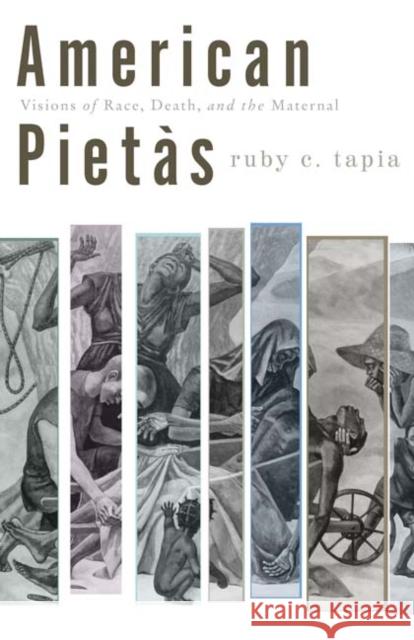American Pietàs: Visions of Race, Death, and the Maternal » książka
American Pietàs: Visions of Race, Death, and the Maternal
ISBN-13: 9780816653119 / Angielski / Miękka / 2011 / 240 str.
American Pietàs: Visions of Race, Death, and the Maternal
ISBN-13: 9780816653119 / Angielski / Miękka / 2011 / 240 str.
(netto: 92,48 VAT: 5%)
Najniższa cena z 30 dni: 96,51
ok. 30 dni roboczych
Dostawa w 2026 r.
Darmowa dostawa!
In American Pietas, Ruby C. Tapia reveals how visual representations of racialized motherhood shape and reflect national citizenship. By means of a sustained engagement with Roland Barthes's suturing of race, death, and the maternal in Camera Lucida, Tapia contends that the contradictory essence of the photograph is both as a signifier of death and a guarantor of resurrection.
Tapia explores the implications of this argument for racialized productions of death and the maternal in the context of specific cultural moments: the commemoration of Princess Diana in U.S. magazines; the intertext of Toni Morrison's and Hollywood's Beloved; the social and cultural death in teen pregnancy, imaged and regulated in California's Partnership for Responsible Parenting campaigns; and popular constructions of the "Widows of 9/11" in print and televisual journalism.
Taken together, these various visual media texts function in American Pietas as cultural artifacts and as visual nodes in a larger network of racialized productions of maternal bodies in contexts of national death and remembering. To engage this network is to ask how and toward what end the racial project of the nation imbues some maternal bodies with resurrecting power and leaves others for dead. In the spaces between these different maternities, says Tapia, U.S. citizen-subjects are born--and reborn.











